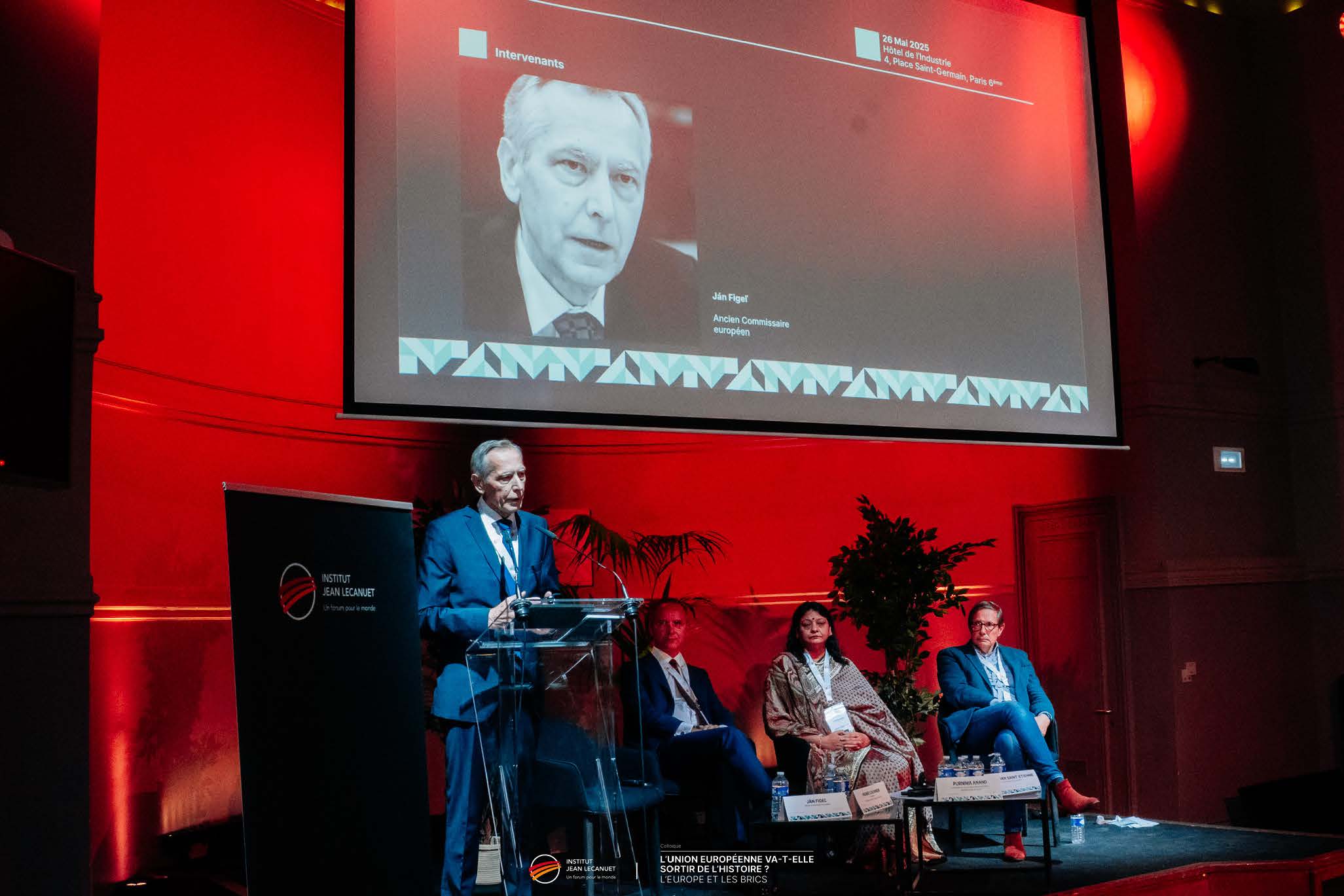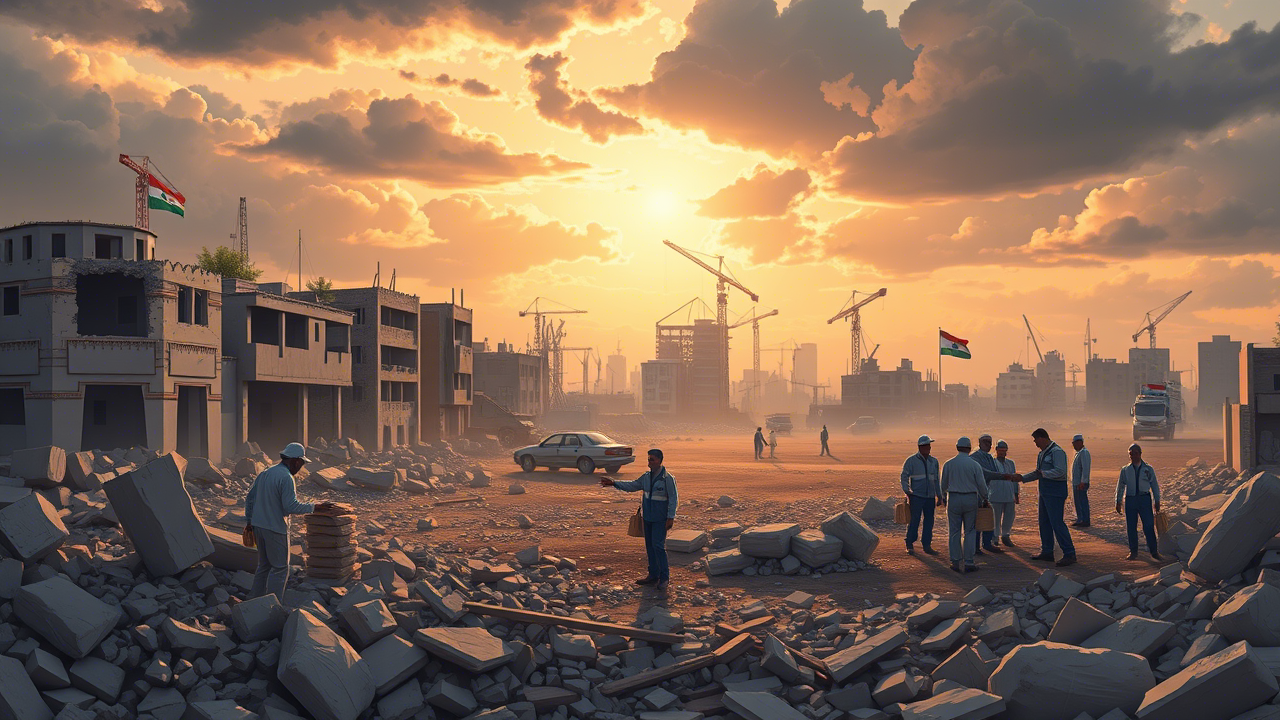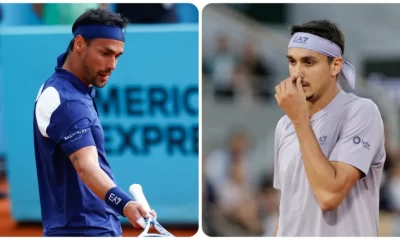Opinion
Is the EU fading from History?

The question about EU’s fading from history is a timely warning. Brexit confirmed it.
The situation of the EU and its Member States is serious – they face war and military conflict at their doors, demographic decline, sluggish economies, growing public debts, rise of violence and new ideologies, mediocracy and frequent corruption within key institutions. All this is present at the same time instead of a focus on common good for all. Instead of shaping the future and the world they all rather speak about consumption of the future. Progressivism is on rise but Europe is not progressing.
Robert Schuman has left one of the greatest political inspirations we can find in modern history. Schuman was a true statesman in service of his nation and a peaceful Europe. He wished to have France for Europe and received back Europe for France. Schuman had a large picture and a long-term vision. His Christian faith and deep spirituality were the source of his tireless service to justice and common good, they nurtured his practical solidarity and political actions.
It is urgent to apply Schuman´s legacy for getting Europe back into the center of human history, in a positive and inspirational manner, shaping our future towards peace, security and prosperity.
Dignity
Never before was Europe fading away from history as much as in 1945, after devastating WWII. Fortunately, we had courageous, brave and hardworking Fathers of Europe like Schuman, Adenauer or De Gasperi – who refused to collaborate with inhumane ideologies of Nazism and communism but refused also a principle of revenge as well. They preferred mutual reconciliation of repeatedly belligerent nations. European founding fathers believed that lasting and true peace is a fruit of reconciliation and justice. For them human freedom, responsibility, dignity have been inseparable.
Justice today is understood as respect to fundamental rights of individuals and communities. But foundational principle of our rights is dignity of person. Human dignity represents fact from which our rights and duties are derived. Respect to HD of all is a road to peace for all. We are all equal in dignity, while all different in identity. This is the essential principle of unity in diversity, motto of the EU.
Robert Schuman and his peers – René Cassin, Jacques Maritain, Charles Malik, Eleanor Roosevelt, John Humprey, P. C. Chang and others – started postwar renewal on the foundational pillar and protection of human dignity. In Paris, under leadership of France in December 1948 UDHR was adopted. The very first sentence says: „…recognition of the inherent dignity and of the equal and inalienable rights of all members of the human family is the foundation of freedom, justice and peace in the world “. Dignity is mentioned in the Declaration five times.
But for Europe, Schuman insisted (not without opposition) on the creation of a system of human rights based on the supranational rule of law, rather than a more declaratory approach of the UN. In May1949 in London Schuman signed the Statutes of the Council of Europe. This step, said Schuman, “created the foundations of a spiritual and political cooperation, from which the European spirit will be born, the principle of a vast and enduring supranational union.”
On 9 May 1950 Schuman Declaration of the French Government was adopted to create a European Community for Coal and Steel (ECSC), based on supranational principles and open to all free countries. In November 1950 in Rome the European Convention of Human Rights by Schuman and 11 other national leaders was signed.
Roots of united Europe – it is not the past – it is presence and future! We must return to our roots, revitalize them, nurture spiritual part of our individual and collective being (as communities and nations). In line with European founding fathers, we should understand the triple importance of human dignity: as a departure point, permanent criterion and unquestionable objective of our policies. Respect of dignity of everyone everywhere is a road to reconciliation, peace and stability.
Therefore, Western and Eastern Europe should avoid detrimental and divisive ideologies. They need serving leaders, who see widely and in long-term perspective. More than increased armament and defense spending Europe needs mature statecraft with wisdom, courage and perseverance to create future, not to consume it at the costs of next generations.
European Union
The ECSC, Euratom and EEC leading up to the current EU represent 75 years of experience, practical solidarity and learning together how to live, work and walk in peace.
After the Franco-German reconciliation and the expansion to six founders, France’s proposal to create the European Defense Community (EDC) was signed by four states in 1954 but was unfortunately rejected by the French Assemblée Nationale. Afterward, the European Communities witnessed and motivated collapses of military dictatorships in Greece, Spain, Portugal, the historical fall of Berlin Wall along with the demise of the Soviet Union and communism in Europe. After that, it grew into the Union of 27 members with 10 candidate countries.
EU became a soft power based on attractiveness of freedom, stability and prosperity.
Brexit weakened European unity while confirming freedom of EU members to exit, to leave. After five years we see a new convergence between London and Brussels. EU was actually moving, growing and changing in times of crisis (oil, constitutional, financial and now security crises). This is fully in line with Schuman´s Plan counting on graduality of integration as a process. Concerning the future, the EU needs as much integration as necessary to achieve shared objectives of its Member States, and to guarantee as much freedom for its citizens as possible.
Four objectives are currently very urgent:
- First is a maximum support of Europe´s competitiveness through technological and systemic innovation. Innovation becomes an imperative. Europe must play in Global Champions League of new technologies, higher education, applied research and innovations.
- Second, based on current challenges, after 70 years since the collapse of the EDC proposal put forward by Pléven Government of France, it is time again to build a European Defense Union, based on the current Lisbon Treaty using the enhanced cooperation clause for likeminded and ready-to-move Member States.
- Third, the Union must maintain a constructive dialogue and develop beneficial economic and trade cooperation with all important partners and organizations, including the BRICS.
- Fourth, undelayed enlargement of the EU is a must, not a mercy of the West towards the East. I can assure you that the price of non-enlargement is much higher than enlargement expenditures. The Union with all new members is MORE EUROPEAN, more complete. WWI started in Sarajevo. Therefore, lasting peace through EU enlargement must come back to Sarajevo, the Western Balkans and Eastern Europe as well.
The dream of the Founding Fathers was: a Europe free and one, whole, from Atlantic to Ural as one Community. The collapse of the Soviet Empire was a great opportunity to speed up work for lasting peace in Europe. The West won the Cold War but did not win peace. True peace among nations is much more than absence of military confrontation. This is our hard and noble task today.
The EU as an active part of a new West-East Community
After the February 2014 revolution in Kyiv, a civil war started in the East of Ukraine. Russia took over Crimea and the Second Cold War started. In absence of true political and diplomatic effort, it turned into a tragic and full war after the Russian military invasion of the Ukrainian territory in February 2022. Instead of getting closer, we witness division between the East and the West of Europe.
This fratricidal war must be stopped as soon as possible. A solution for lasting peace should be creative and constructive, based on dignity of peoples on both sides of the front line. It is not about the future of individual political leaders. They come and go. But nations remain. 75 years ago a tragic war was over. People were longing for peace and stability. Today war is not over, killing and destruction go on, people on war-torn territories suffer and die. They equally desire and deserve peace.
Potential solution is at hand. It can be labelled as Schuman Plan #2. Clementy Foundation elaborated it during the last two years, organizing discreet dialogues among personalities from Europe, US, Russia, Asia in the Vatican. We are grateful to the Pontifical Academy of Sciences for sharing its space and hospitality in order to study and apply Venerable Schuman’s legacy in our critical times.
The original role of the Franco-German rapprochement is now proposed for two major military and political powers in our civilizational space – the United States and the Russian Federation. Many in the world identified war on Ukraine as a proxy war between the two nuclear superpowers. With the exception of two cold war periods, relations between the two countries were constructive and cooperative. By the way, Russia supported the US independence. Judeo-Christian roots on both sides should nurture their global responsibility for peace and security. Desire for prosperity is close and dear to all people, East, West, North, South.
Clementy Ven. Schuman Legacy Foundation proposes to create common markets for strategic commodities and resources of both superpowers. Namely energy resources including infrastructure, raw natural materials, information technology and intellectual property. Participation must remain open and be offered to all countries and groups of countries who accept such an exceptional agreement, first of all from Europe, North America and Central Asia.
A new Community connecting Alaska with Kamchatka through Europe and Central Asia will emerge representing enormous, unprecedented economic potential. This may lay the foundations for the North Hemisphere Community or the West-East Community. This Great Deal between two superpowers will enable to find an acceptable compromise and end of the war in Ukraine faster and easier. And it will generate resources for dynamic reconstruction of all destroyed territories and infrastructure. The first reactions to this proposal from the East and the West are encouraging.
Lasting peace in Europe is possible and urgent. And it does not depend on more armaments, but on creative and constructive policy and mature leadership of relevant countries, including the European Union and its Member States. Schuman´s example and legacy can get Europe back into the center of human history, in positive and inspirational manner, shaping our common future towards peace, shared security and prosperity.It is difficult, but an achievable and rewarding task!
Opinion
EU’s Stance on Gaza: Balancing Diplomacy, Security, and Reconstruction

The European Union’s latest statement on Gaza, following the Cairo Summit on March 4, underscores its alignment with Arab-led reconstruction efforts while reinforcing its position on security and governance in the region. The statement reflects a complex balancing act between supporting Palestinian state-building, ensuring Israel’s security, and maintaining diplomatic cohesion with Arab partners.
Backing the Arab Plan: A Shift Toward Regional Solutions
The EU’s endorsement of the Arab Recovery and Reconstruction Plan, adopted by the Organization of Islamic Cooperation (OIC), signals a growing recognition of regional leadership in resolving the Gaza crisis. By engaging with Arab states, the EU appears to acknowledge the necessity of a broader coalition to oversee Gaza’s post-conflict governance, an approach that could reduce unilateral Western influence and increase local legitimacy.
This move aligns with previous EU efforts to position itself as a diplomatic actor in the Israeli-Palestinian conflict, often working in parallel with the United States but emphasizing multilateralism. The EU’s willingness to engage with Arab partners suggests a strategic calculation: recognizing that a sustainable Gaza plan will require buy-in from both Palestinian and regional stakeholders, particularly given the divisions between the Palestinian Authority (PA) and Hamas.
Exclusion of Hamas: A Clear Red Line
One of the strongest elements of the EU’s statement is its unequivocal stance that Hamas must have no future role in Gaza. This reflects long-standing EU policy—Hamas is classified as a terrorist organization by the bloc—but the direct phrasing in the statement underscores that Brussels sees the group as a fundamental obstacle to any lasting peace framework.
By reinforcing this position, the EU aligns with Israeli security concerns while also backing the Palestinian Authority as the legitimate governing body. However, this raises a significant practical challenge: while international actors may seek to sideline Hamas, the group retains significant support within Gaza, as well as military capabilities that could make any transition of power difficult.
The Palestinian Authority’s Role: A Conditional Endorsement
The EU’s commitment to strengthening the Palestinian Authority and its reform program suggests a conditional approach—backing the PA, but with the expectation of governance improvements. This reflects broader concerns, including within Arab states, over the PA’s capacity to effectively govern Gaza, particularly given its weakened legitimacy and governance struggles in the West Bank.
The EU’s financial and political support for PA-led governance in Gaza would likely come with expectations of reform, addressing corruption, security coordination, and administrative efficiency. Yet, the PA’s ability to reassert control over Gaza, particularly after 17 years of Hamas rule, remains an open question.
Ceasefire, Hostages, and a Political Horizon
The EU’s call for the full implementation of the ceasefire-hostage release agreement aligns with ongoing diplomatic efforts by the US, Egypt, and Qatar to secure an end to hostilities. However, the statement notably avoids specific measures for enforcement, reflecting the EU’s limited leverage in mediating between Hamas and Israel.
By reaffirming its commitment to a two-state solution, the EU maintains its long-standing policy framework, but the feasibility of such an outcome remains highly contested. Israeli government policies, Palestinian political divisions, and regional dynamics continue to pose obstacles, raising questions about how the EU intends to translate diplomatic statements into actionable policy.
Humanitarian Assistance and Reconstruction: The Immediate Focus
The EU’s emphasis on scaling humanitarian aid reflects the urgent crisis on the ground, with Gaza’s infrastructure severely damaged and civilian suffering at critical levels. However, the challenge remains how to ensure aid reaches those in need without bolstering Hamas’s influence—a concern that has historically complicated international assistance efforts in the region.
A Strategic but Limited Role
The EU’s statement signals a commitment to engage with Arab states, support Palestinian governance reform, and push for security guarantees for Israel. However, its ability to influence the realities on the ground remains constrained by regional actors, political divisions, and security concerns.
Moving forward, the EU’s role may hinge on its ability to bridge the gap between international diplomatic frameworks and local political realities—a challenge that has long defined its engagement in the Israeli-Palestinian conflict.
Opinion
Why diversifying trade is the only answer to wartime food security
The argument is often made about food, as well as about dozens of other “strategic goods”, that we must be self-sufficient in the face of threats to peace around the world.
The argument itself is very old, old enough for the self-sufficiency argument, as well as the feasibility of actually being self-sufficient, to have finally graduated to the status of political myth. Yet this is, unfortunately, a myth that refuses to die. One that continuously puts European nations on the path towards fragile supply chains.
The conflict in Ukraine has disrupted Black Sea agricultural exports, pushing prices higher, and exacerbating high energy and fertilizer costs. As major exporters of grain and vegetable oil, conflict around the Black Sea is significantly disrupting shipping.
In Sudan, the combined effects of conflict, economic crisis, and poor harvests are significantly affecting people’s access to food and have doubled the number of people facing acute hunger in Sudan to around 18 million. The higher grain prices from the war in Ukraine was the final nail.
If fighting in Gaza escalates across the Middle East, (which, fortunately, is looking less likely) it could spark a second energy crisis which could send food and fuel prices spiralling. The World Bank warned that if the conflict were to intensify, it could result in significant price hikes for oil and exacerbate food insecurity, both within the Middle East and globally.
It should be obvious that the most secure food supply, steel supply or fuel supply is one that draws from as many sources as possible, so that if one dries up, or is caught up in a military or diplomatic calamity, then the supply is able to be recovered by increasing trade through the many alternative channels. Its how Qatar, cut off during the blockade in 2017, was able to continue largely unaffected despite being shut off from all its neighbours and producing itself almost no food at all.
The myth’s enduring popularity largely is down to the way it interacts with our basic human psychology. Most of our mental heuristics are learn for much more simplistic problems. The way we’ve learnt to survive is by hoarding and sitting on as large a pile of food as possible. We’re also naturally disinclined to trust our neighbours, let alone rely on them.
Breaking though our prehistoric instincts and embracing what are therefore the counter-intuitive tenets of free trade is thus quite a tall order. Perhaps it explains why free trade remains so unpopular compared to protectionism despite the overwhelmingly positive record that free trade can claim for itself, singlehandedly lifting billions out of poverty.
Convincing the current generation of European politicians to diversify their food supply will always be hard – but the gains are massive if they can see the light.
Regions like Latin America and Southeast Asia stand out as regions where the EU does far too little strategic trade. Being in different hemispheres means that the seasons are opposite (or have massively different climates in the case of Southeast Asian countries like Malaysia), so the benefits to mutual supply chains are naturally complementary. Such countries are primed for mutually beneficial trade to boost strategic security.
Countries like Argentina produce large amounts of meat, something the EU sanitary and phytosanitary rules (SPS) make much more difficult to import than it need be. Malaysia is the world’s largest exporter of palm oil, producing the oils and fats needed across dozens of food categories. Compared to other main oilseeds, such as soybean, rapeseed, and sunflower, which can be grown domestically, oil palm is the highest-yielding oil crop. Making it cheaper and easier to import would mean food security in times of instability, and cheaper staples in times of peace by driving down costs.
More trade also means more influence and more transparency in supply chains. Taking the Malays as an example again, their agrifood industry is embracing the use of blockchain technology and traceability to prove that their products are environmentally friendly and deforestation-free. Trade makes economically viable massive environmental efforts to protect the environment. Conversely, it creates interdependence with regions around the world which reduce the likelihood of conflict or international rulebreaking generally.
The great French economist Frédéric Bastiat wrote that ““When goods don’t cross borders, Soldiers will”. He observed the power of interdependence as a peacekeeper. Diversifying trade is therefore both preparation and prevention. Politicians must overcome their primitive instincts and let the goods flow.
Opinion
Why Israel is wrong to accuse Qatar of developing Hamas
For the past few days, the Israeli Prime Minister has been focusing his criticism on Qatar, not knowing where to turn and, above all, in the face of a flood of worldwide criticism of his hard-line strategy in Gaza and the way out of the war. He even recently accused Doha of being indirectly responsible for 7 October. While Qatar has been manoeuvring to negotiate with the Islamist organisation for the past three months, it is also endangering the hostages, many of whom are still being held in Gaza.
Quite surprising to now accuse Qatar of bearing the burden of what is happening, even though Netanyahu acknowledged in 2019 that it was important to support Hamas in order to continue to weaken the Palestinian Authority and prevent the creation of a Palestinian state. Bibi’s policy has always been to deal with the Islamist organisation to the detriment of Abbas’s Palestinian Authority. The division of power between the West Bank and the Gaza Strip was the perfect tool to condemn the formation of a Palestinian state.
Netanyahu’s absurd attack on Doha when we know that the Hebrew state helped support Sheikh Yassin, its founder, in 1988, always with the aim of dividing the Palestinians as much as possible. Despite its anti-Jewish doctrine, Israel has supported the development of the most radical branch of the Muslim Brotherhood and has played with fire. Just as the Americans supported the Afghan Mujahideen against the Soviets, the Hebrew state thought it could use a few bearded men to weaken Yasser Arafat’s Fatah for good. Charles Enderlin, former France 2 correspondent in Israel, has published a number of articles and books explaining the complacency of the Israeli right towards Hamas, the emergence of which would certainly doom a future state for the Palestinians once again.
Finally, it’s absurd when you consider that Qatar has been harbouring Hamas leaders at the request of the Americans (and Israelis) so that it can negotiate the day they are needed. And since 7 October, alas, that day has arrived in an attempt to save the lives of almost 140 Israeli hostages still being held by Hamas in Gaza. Today, however, the powerless international community is trying to bring about a ceasefire and a halt to bombing in Gaza after the deaths of nearly 25,000 Gazans, mostly women and children, since mid-October.
If no lasting political solution emerges from the military response to Israel’s worst attack in decades, following the deaths of nearly 1,400 people in Israel in 48 hours, then once again a temporary solution will be adopted that will have to last, to prevent the Israelis and Palestinians of Gaza from killing each other to the last man. And in any case, it is unlikely to be the creation of the Palestinian state that the Israeli government still does not want. Even less so today, even if it would perhaps be the first guarantor of the security of the Jewish state.
Who can help put an end to the noise of weapons and get diplomacy back on track in the Middle East? The United States and Europe are still trying, with the support of Egypt and Qatar, which Netanyahu is suddenly criticising in order to absolve himself of his major responsibility. In a general geopolitical context in which the major Western powers are increasingly marginalised as peacemakers, as are the major international organisations that are supposed to ensure respect for international law, it is above all the regional powers that for several years have been regaining control of their zone of influence or putting forward their talent as peace mediators to have a say in the concert of nations in crisis or at war. As far as the conflict between Israelis and Palestinians is concerned, the United States, which for years has been disengaging from Middle Eastern conflict zones, can do little, especially as Joe Biden’s term of office, which is irrevocably drawing to a close, further weakens his capacity for influence and action, if his administration has had any over the last three years. The European Union, mired in the Ukrainian crisis, has long since lost its diplomatic capacity and remains forever a political dwarf in the cacophonous symphony of world powers. That leaves Egypt and Qatar above all. Traditionally, Egypt, which has been at peace with Israel since 1977 and the Camp David Accords, has always managed in recent years, since the arrival of President Sissi, to negotiate a pause in hostilities between Israel and Gaza. Cairo’s relations with the Hamas movement are cordial and enable it to reconcile its points of view with Tel Aviv on each occasion.
The player that can probably make the most of the situation, and in the continuity of what it has been doing for years, from the Horn of Africa to Afghanistan, is Qatar, which has had a relationship with Israel for a long time, something that Netanyahu forgets. Qatar’s proximity to these Islamist movements, such as the Taliban at the time of the negotiations with the Americans in 2018, is a key asset for Doha. It dates back precisely to the time when Washington asked the Emirate to keep an eye on its leaders. With the American base at Al Oudeid, the largest American off-ground base in the world, Doha saw its capacity to one day monetise this “service rendered” for its credibility and its de facto proximity to the enemies of many, and to see itself emerge as a key regional peace mediator.
Originally published at Info-Today.eu
-

 EU & the World7 days ago
EU & the World7 days agoWho Is Conner Smith? 5 Things to Know About the Country Singer
-

 EU & the World7 days ago
EU & the World7 days agoAaron Rodgers’ Wife & Ex-Girlfriends: His Past Relationships
-

 Sports7 days ago
Sports7 days agoToprak Razgatlioglu promoted to MotoGP: Yamaha's announcement
-

 Sports6 days ago
Sports6 days agoScudetto final, Virtus Bologna: Dusko Ivanovic lists dangers of series with Brescia
-

 EU & the World7 days ago
EU & the World7 days agoKurt Russell’s Kids: About His 2 Children & Relationship With Goldie Hawn’s Kids
-

 Sports7 days ago
Sports7 days agoLorenzo Sonego and Fabio Fognini immediately eliminated in Stuttgart
-

 EU & the World7 days ago
EU & the World7 days agoGrand Central Fire: Train Updates & More on the Situation in NYC
-

 EU & the World6 days ago
EU & the World6 days agoBrian Wilson’s Net Worth: How Much Money The Beach Boys’ Co-Founder Had








